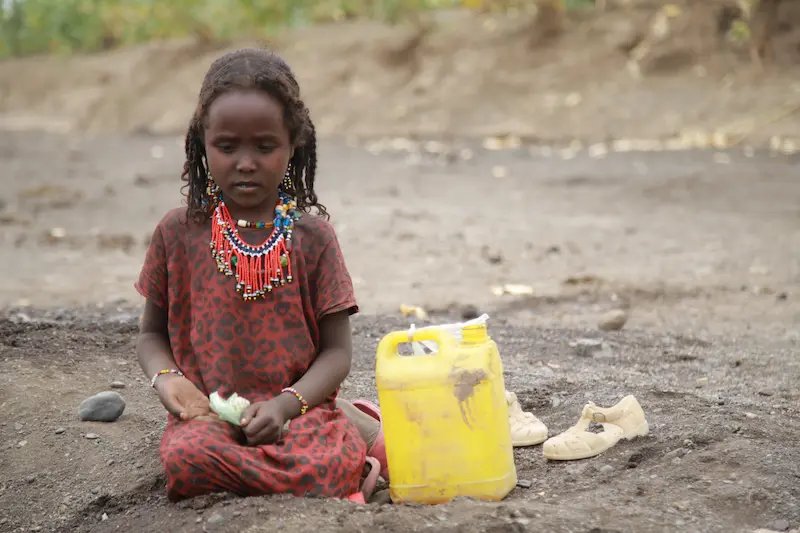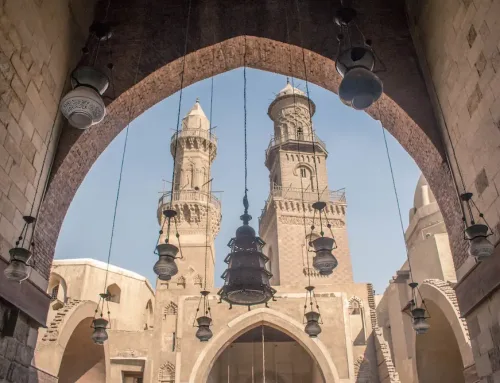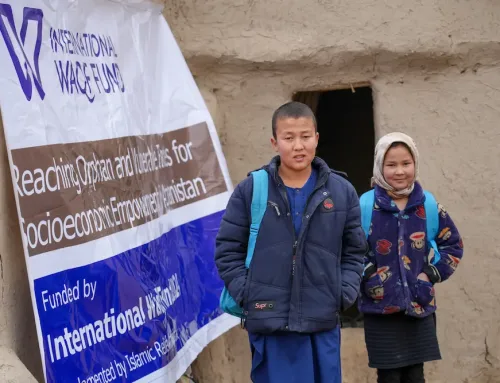Table of Contents
With the rise of humanitarian challenges and the increasing number of those in need, including displaced persons and patients around the world, charitable endowment (waqf) stands as one of the greatest tools for sustainable empowerment. It is not merely a temporary voluntary act, but a strategic developmental model that redistributes resources fairly and provides communities with tools for self-sufficiency.
In the Islamic concept, waqf is not about transient giving, but about establishing lasting charitable institutions that serve people continuously—free from dependence or seasonal poverty.
waqf meaning
Linguistically: means to withhold and to prevent.
Legally (in Islamic jurisprudence): It is “withholding the principal and dedicating the benefit,” meaning allocating a fixed asset, preventing its sale or inheritance, and dedicating its income or benefit to a lasting charitable cause.
Waqf : A Legislative and Historical Perspective
Since the time of the Prophet Muhammad ﷺ, waqf has been a means for building the Islamic state, supporting the poor, financing education, and caring for the needy.
The Prophet ﷺ established the first waqf in Islam: the well of Rumah in Madinah, which was purchased by the companion Uthman ibn Affan (may Allah be pleased with him) and made a waqf for the Muslims.
The companions and their successors established endowments in areas such as:
Education (schools, Quranic circles, libraries)
Health (bimaristans and hospitals)
Caring for orphans and widows
Relief for disaster victims
Support for travelers and wayfarers
Why is waqf a Long-Term Investment?
Is not just an act of kindness, but a strategic investment in the future of communities. It is characterized by:
Continuity:
Unlike one-time donations, Charitable Endowment ensures lasting benefit for decades or even centuries.Financial Independence:
It provides charitable institutions with a stable income source, without constant need for support.Cumulative Impact:
Each year increases its impact and beneficiaries without needing more funding.Ongoing Reward for the Endower:
Allah has promised an uninterrupted reward for the one who creates a waqf, as long as it continues to serve.Reinvestment of Wealth for Public Benefit:
Endowments direct individual wealth toward serving the public good.
Modern Fields of waqf
Today, charitable endowment is not limited to building mosques or printing Qur’ans—it now addresses many of the essential needs of human societies, including:
1. Educational Endowment
Building schools, institutes, and universities
Sponsoring students
Providing smart devices and educational materials
Supporting free digital learning platforms
Impact: Eradicating illiteracy, empowering future generations, building capable community members.
2. Health Endowment
Establishing clinics and health centers
Purchasing medical equipment (e.g., radiology, dialysis, incubators)
Funding expensive medications and treatments
Supporting patients with chronic and rare diseases
Impact: Saving lives, easing pressure on healthcare systems, breaking the cycle of health-related poverty.
3. Food and Relief Endowment
Charitable kitchens
Monthly food packages
Supporting school meal programs
Emergency funds for natural disasters and displacement
Impact: Reducing hunger, strengthening food security, preserving human dignity.
4. Economic and Empowerment Endowment
Funding small projects for needy families
Providing production tools (machines, vocational equipment)
Offering sustainable vocational training for youth and women
Impact: Lifting families out of poverty, creating local jobs, enhancing self-reliance.

5. Religious and Cultural Endowment
Mosques and Islamic centers
Libraries
Supporting academic conferences
Printing books on jurisprudence and Islamic outreach
6 . Charitable Endowment and Orphan Sponsorship: A Model of Sustainable Mercy
Orphan sponsorship is one of the greatest avenues of righteousness in Islam. The Prophet ﷺ said:
“I and the one who takes care of an orphan will be in Paradise like this,” and he held his two fingers together.
To ensure the continuity of this noble deed, charitable endowment emerges as a strategic tool to establish a lasting sponsorship that does not end with the death of the sponsor or changing economic conditions.
When an endower allocates a fixed asset (such as property, shares, or an endowment fund), and assigns its monthly or yearly returns to support orphans, this creates ongoing sponsorship covering:
Food and clothing
Education and healthcare
Psychological and social support

How to Start Your Own Waqf?
Through the website of the International Waqf Fund, you can donate the value of a waqf share. The fund then invests the amount and uses its annual returns to finance the emergency relief fund.
Each year, your donation grows and saves more lives in different communities—and that is the ultimate goal





